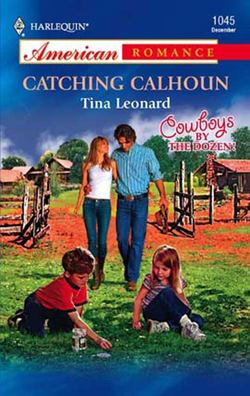Читать книгу Catching Calhoun - Tina Leonard - Страница 12
Chapter Four
ОглавлениеAfter putting the kids to bed that evening, Olivia decided to sit out on the stoop of their motor home. The evening air was inviting, and she wasn’t ready to crawl in bed. She needed to think, and the topic of her thoughts was Calhoun. The paint had now faded some from the children’s faces—they wouldn’t remove the art at bedtime, claiming the drawings were special—but her thoughts about Calhoun were in no danger of fading at all. She felt as though her heart was running away inside her chest, wild and free where she couldn’t lasso it or tell it to calm down.
“I’m too old for such silliness,” she murmured, scratching at a bug bite on her leg just below her shorts.
“Ms. Spinlove,” she heard Calhoun say. “You forgot this.” He held out the ten dollars she’d left for him.
Her heart raced faster, thrilled to be out of reach of the lasso. “We’re paying customers.”
“I’ll charge you when I’ve actually worked for it. Your kids are a pleasure.”
Of course he would say that, the louse. A man who painted women’s naked bodies as brilliantly as he did also knew their minds intimately, no doubt. Everything was laid bare before him. “Please don’t sweet-talk me. I’m real sensitive about my kids.”
“You should be. May I?”
He asked permission to sit next to her on the stoop. She didn’t want him to, but there was no place else to sit, and besides, it seemed somewhat rude after he’d put the money back in his pocket to save her pride. It wasn’t as if he was going to kiss her again—though her feminine wishes delighted at the thought.
“I didn’t just come to return the money,” Calhoun said. “I also wanted to tell you that we didn’t deliberately go against your rules today. I kind of got caught in the cross fire. Your daughter watched me paint a little girl’s face, and—” he shot her a glance she’d have to call pleading “—Olivia, I couldn’t send Minnie away. The hope for a face tattoo was written all over her. And Kenny looked so old and wise and sad—”
“I told you,” she interrupted. “They’re worriers. And it shows. So people worry about them.” She sighed deeply. “I don’t know why they worry as much as they do.”
“Probably because they see you doing it. And you talk to them like they’re little adults. Which is not an entirely bad thing, but it does make them realize that the world around them requires some figuring out rather than magical zippedee-do-da.”
“You’re right,” she said, surprised.
